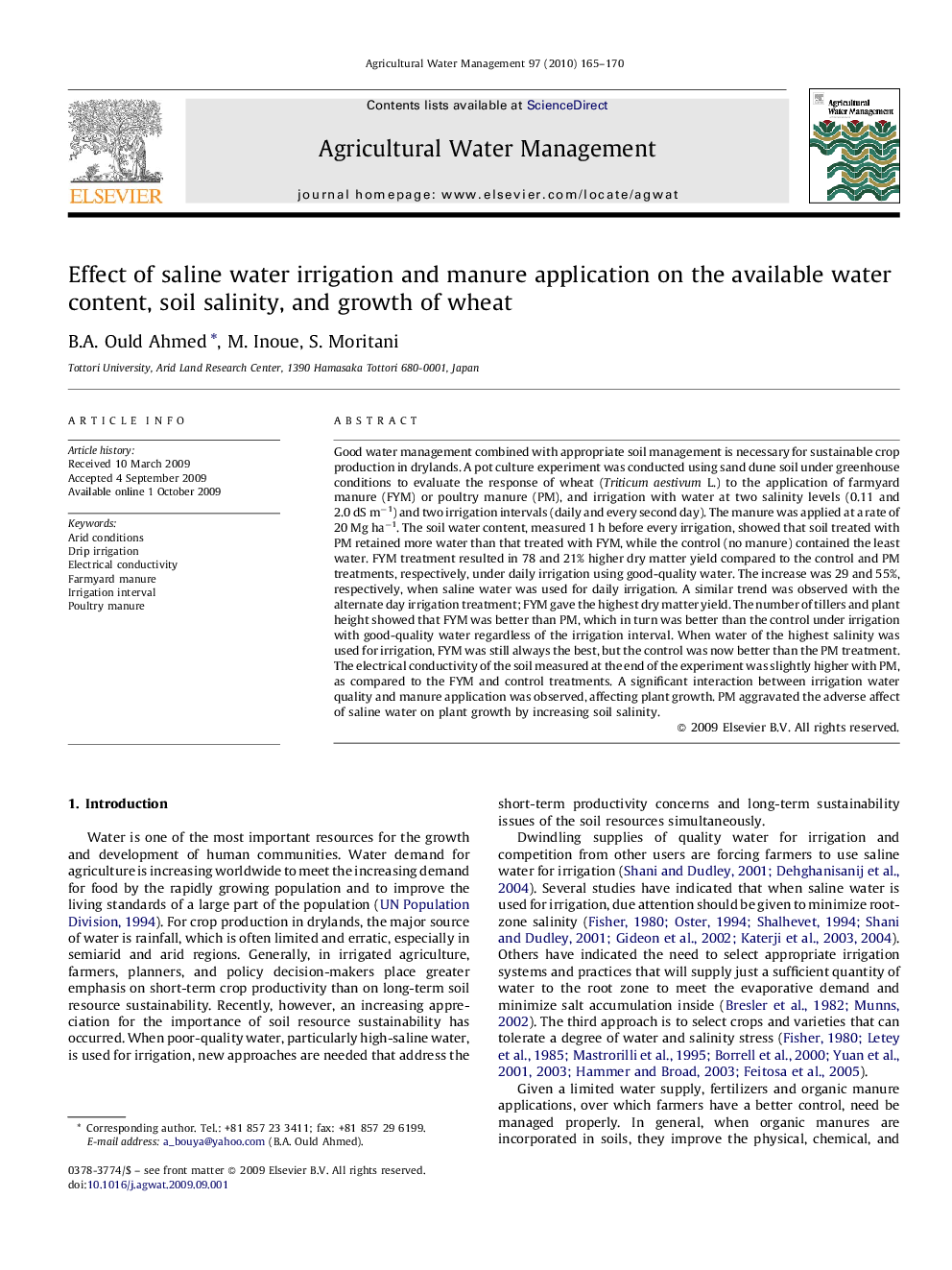| Article ID | Journal | Published Year | Pages | File Type |
|---|---|---|---|---|
| 4479818 | Agricultural Water Management | 2010 | 6 Pages |
Good water management combined with appropriate soil management is necessary for sustainable crop production in drylands. A pot culture experiment was conducted using sand dune soil under greenhouse conditions to evaluate the response of wheat (Triticum aestivum L.) to the application of farmyard manure (FYM) or poultry manure (PM), and irrigation with water at two salinity levels (0.11 and 2.0 dS m−1) and two irrigation intervals (daily and every second day). The manure was applied at a rate of 20 Mg ha−1. The soil water content, measured 1 h before every irrigation, showed that soil treated with PM retained more water than that treated with FYM, while the control (no manure) contained the least water. FYM treatment resulted in 78 and 21% higher dry matter yield compared to the control and PM treatments, respectively, under daily irrigation using good-quality water. The increase was 29 and 55%, respectively, when saline water was used for daily irrigation. A similar trend was observed with the alternate day irrigation treatment; FYM gave the highest dry matter yield. The number of tillers and plant height showed that FYM was better than PM, which in turn was better than the control under irrigation with good-quality water regardless of the irrigation interval. When water of the highest salinity was used for irrigation, FYM was still always the best, but the control was now better than the PM treatment. The electrical conductivity of the soil measured at the end of the experiment was slightly higher with PM, as compared to the FYM and control treatments. A significant interaction between irrigation water quality and manure application was observed, affecting plant growth. PM aggravated the adverse affect of saline water on plant growth by increasing soil salinity.
